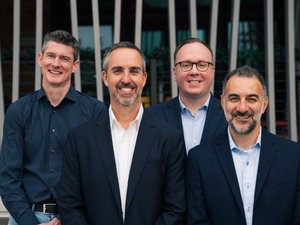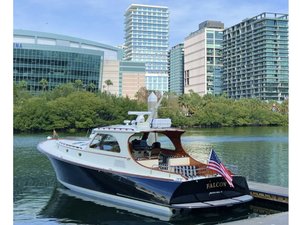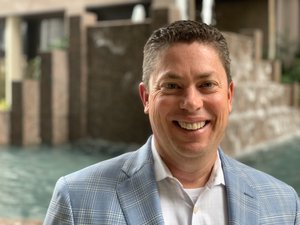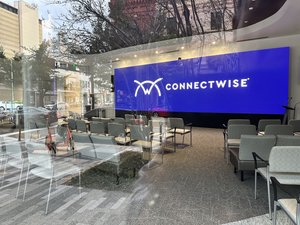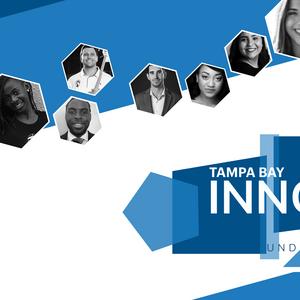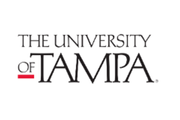
For some leaders in Tampa Bay, it's irrelevant to discuss whether the region is or isn't a high-density technology hub. There are critical issues to be solved first.
Four faces of the regional innovation economy spoke at a Leadership Tampa panel on Feb. 7. Linda Olson, the CEO and founder of the nonprofit Tampa Bay Wave; Rachel Feinman, the vice president of innovation and venture at Tampa General Hospital; Lakshmi Shenoy, the CEO of nonprofit Embarc Collective; and Chris Paynter, a dean at Hillsborough Community College, discussed the past and future of Tampa Bay.
The main takeaway: Tampa Bay has arrived as a tech hub. But it's still finding its place in the greater ecosystem, and with a distributed workplace, the priorities of tech startups aren't the same as before the pandemic.
Tampa Bay Inno rounded up some of the main takeaways from the conversation.
On defining startup success
- "It's revenue, it's jobs created, it's capital raised, but I get really passionate about surviving. That is not something to take for granted. When you're building something from scratch, you are on the hook for every problem," Shenoy said. A significant characteristic of startup success is endurance and survival on a day-to-day basis. Progressing each day is a milestone, Shenoy said.
- "I always look at the person versus the business ... your startup is going to look inherently different in six months, in 12 months. And so I don't get too attached to the solution, but I do hook on to the problem," Shenoy said. Problems should be essential and help an identified group of people or issues. And it takes a motivated founder to pull it off, she said.
On how innovation works at Tampa General Hospital
- "Not only is it the problem they're solving, but it's the prioritization of that problem — because we have tons of problems to solve in health care," Feinman said. Healthtech innovation requires focus and intention to find the right solution, she said.
- "That's really the goal for us is to take our partnerships that we have with these companies and be a strong customer, help them enhance their solutions, grow their market, be a reference site, do all of those great things, and then also have invested in them. And then over time ... be able to take that money and bring that back into innovation in the organization," Feinman said on working with Tampa General Hospital. One example is an Orlando partnership that works on virtual enablement in the hospital room.
On emerging and Tampa finding its place in tech
- "[Capital access] is significantly better than it was before; we just are not a very rich early-stage capital ecosystem," Olson said. Venture capital is improving, but it's still a fraction of the total investment nationwide. The majority of Tampa companies are raising money from investors outside Florida. But that's not entirely negative — it's still building access and bringing capital into the state, Olson said.
- "The pandemic has changed the game in terms of what does density look like?" Shenoy said. The idea of a regional headquarters has dissolved in a remotely operated world. "We might be starting to think about it less in terms of the companies [in Tampa Bay] and more about individuals that are part of the building of companies, no matter where that company may be." Increasing the volume of regional startups is the key to growth. But the startup ecosystem should be measured on new factors today, Shenoy said.
- "I hardly ever get on a call with a startup and there are three executive-level people from the company and they're all located in the same place," Feinman said. Startups have learned to find culture and creativity in a distributed workplace. That's a positive and negative for the regional ecosystem, she added.
- "We're not just sunshine. How can we get people to come here? We have definitely arrived, and I would say that's a great thing. But there's also a challenge to us because ... we do have a lot of people who are here. They're living here, their kids are going to school here, but they're not working here," Feinman said.

